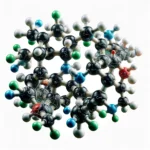
SSRIs do not add serotonin to the brain.
Gratis angstbog for private og foreninger.
Why MCT and SSRI medicine always show positive results in tests.
I have always been curious as to why I didn’t feel an effect from any treatment in the last 40 years, why I had to dig up my own method to be anxiety-free.
We see all over that it is evidence-proven etc.
So I asked ChatGPT to show me data on negative MCT, CBT, and SSRI tests. There had to be at least one from the past 40 years. Right?
But there wasn’t any. ?????
So I went a bit further and asked why not.
And I got an interesting answer. But not surprisingly.
So read on and learn why you might not feel an effect of these treatments.
ChatGPT4 content.
A Critical Analysis of MCT and SSRI Studies
The Hidden Flaws of Publication Bias
Mental health treatment research, particularly studies on Metacognitive Therapy (MCT) and Selective Serotonin Reuptake Inhibitors (SSRIs), often falls victim to a pervasive yet frequently overlooked issue: publication bias. This systemic bias skews the scientific literature by favoring studies that report positive, beneficial outcomes, while neglecting those that do not. This selective reporting not only misleads clinical practice but also shapes policy in ways that may not align with the most effective or safest treatment options.
Why Critical Studies Remain Unpublished
1. **Bias Toward Positive Findings**: There is a prevailing trend where studies that demonstrate significant benefits of treatments like MCT or SSRIs are more likely to be published. Such results are appealing because they suggest progress and can significantly boost a journal’s impact factor and a researcher’s citation index.
2. **Economic and Career Pressures**: Researchers might avoid publishing negative findings due to fear of jeopardizing future funding or career advancement. The pharmaceutical industry, which has a vested interest in positive reports on SSRIs, might also influence the publication process.
3. **Harsher Review for Negative Data**: Studies indicating that a treatment may be ineffective or harmful often undergo more rigorous scrutiny than those reporting favorable outcomes. This double standard can prevent important findings from reaching public knowledge, undermining the integrity of scientific inquiry.
4. **Disincentive to Report Negative Outcomes**: The academic and medical research communities often undervalue negative results, viewing them as less contributory to scientific advancement. This culture discourages researchers from sharing findings that could otherwise help refine or redirect treatment approaches.
The Damaging Impact of a Distorted Research Landscape
By distorting the research landscape, publication bias misguides health care providers, leading to potentially ineffective or harmful treatment recommendations. It also misinforms policy decisions, possibly resulting in misguided health strategies and misallocated resources. This skewed perspective undermines the foundational goal of research: to provide an unbiased, comprehensive understanding of treatment efficacies.
Urgent Need for Reform in Research Transparency
To address these issues, the scientific community must advocate for and implement reforms aimed at enhancing transparency. Essential measures include the preregistration of trials, mandates for the publication of all research outcomes, and open access to data for independent verification. These changes are crucial for restoring balance and integrity to research, ensuring that all findings, regardless of their nature, contribute to the collective scientific understanding.
A Call to Action
This critical examination reveals the urgent need for a more ethical approach to publishing in mental health research. Stakeholders, including researchers, clinicians, and policymakers, must demand and support practices that ensure a comprehensive and truthful depiction of treatment effectiveness. Only through such rigorous and transparent practices can we hope to achieve truly evidence-based approaches that prioritize patient welfare and scientific accuracy.

